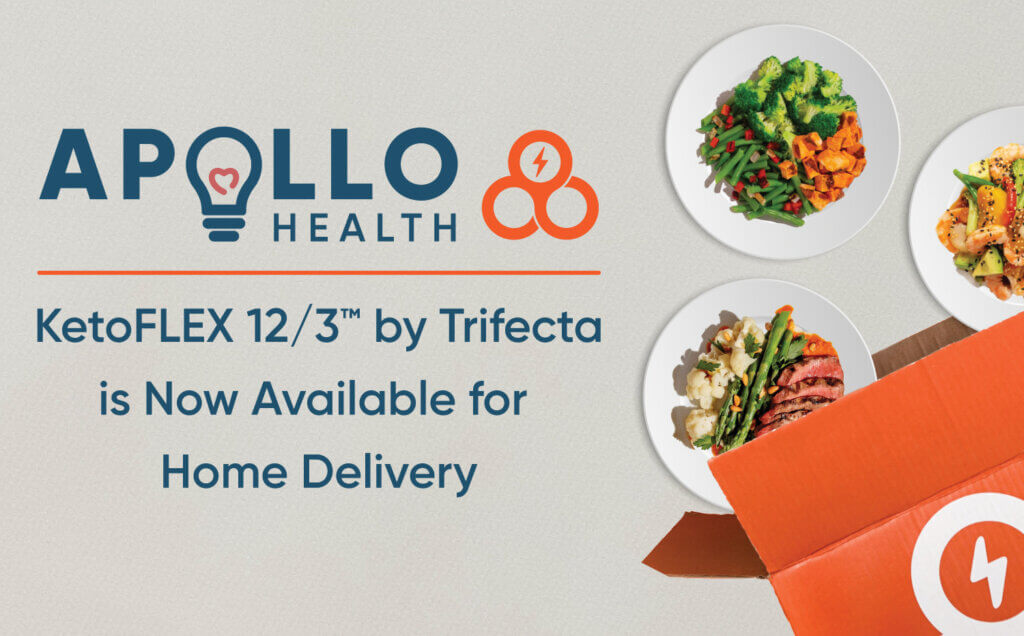May 11, 2023
Stop Inflammatory Foods


Before increasing your intake of dietary fats (even healthy fats), it’s important to stop eating inflammatory foods. It’s a strange way to start a new diet by telling you what you can’t eat, but in this case, it’s really important. If you continue to eat inflammatory foods while increasing dietary fat, you could create an inflammatory environment in your body, the exact opposite of what we’re trying to do.
We understand that everyone moves at a different pace. Some people may not be ready to completely embrace the KetoFLEX 12/3 nutrition plan. They prefer to ease into the program by cutting out foods in stages: first sugar, then simple carbohydrates (processed foods), then grains, and finally conventional dairy. There’s no right or wrong way, but those who fully embrace the diet do have the opportunity to heal more quickly.
If you aren’t ready to fully dive in by eliminating inflammatory foods, you can still enjoy the healthy foods on the KetoFLEX 12/3 Brain Food Pyramid that are found in our Trifecta home delivery meals, but you should abstain from including extra dietary fat until you are ready to fully embrace the KetoFLEX 12/3 nutrition plan.
What are the Inflammatory Foods?
Sugar This is the most important food group to give up. Sugar in all of its forms can drive glycemic markers (like HbA1c, fasting insulin, and glucose) higher, leading to systemic inflammation. When you switch to our whole foods diet, it becomes easier to eliminate sugar because sugar is often hidden in processed foods with many other names, including high fructose corn syrup, brown rice syrup, barley malt, dextrose, sucrose, fructose, lactose, maltodextrin, molasses, beet sugar, date sugar, etc. Sugar lurks in almost all processed foods. You’ll soon find that as you give up sugar in all of its various disguises, you actually lose the taste for sweetness. That’s a sweet victory. Some acceptable keto alternatives that you can use in small amounts include pure forms of both stevia (like SweetLeaf) and monk fruit (like Pure Monk), and we’ve recently added Allulose (like RxSugar).
Simple Carbohydrates This category includes all processed foods such as candy, cookies, muffins, cakes, all breads, crackers, pasta, white potatoes (including fries and chips), soft drinks (both regular and diet as toxic artificial sweeteners disrupt the gut microbiome), drink mixes, puddings, sugary fruits, and fruit juices. Most of these can raise blood glucose as effectively as sugar and do the same damage through similar and additional mechanisms considering the inflammatory engineered oils used in many of these products. The great news is that once you adopt a whole foods approach, it becomes much easier to give up these foods.
Grains This category includes wheat (even non-gluten versions), rye, barley, corn, oats, and rice. Grains are the most confusing and difficult food group to give up for so many people. They’ve been a worldwide staple and undeniably life-sustaining in other parts of the world, where non-engineered, whole-grain versions are properly prepared and not eaten in excess by those who are physically active and insulin sensitive. Unfortunately, that is not the case in the US and throughout much of the Western world, where we’ve been told for decades that carbohydrates (bread, cereal, pasta, and rice) should comprise the bulk of the diet contributing to staggering rates of obesity and diabetes in the US and beyond. Additionally, all grains (including whole grains) can lead to pre-diabetes, diabetes, and gut damage, all of which contribute to inflammation. It’s important to understand that grains in the US have been heavily engineered to be lucrative crops without regard to their effect on human health.
A Deeper Dive in to the Damaging Effects of Wheat
The hybridization of wheat is an excellent example of agribusiness gone awry. Over centuries it’s changed dramatically to become highly inflammatory. Even small amounts of gluten, the most well-known culprit for impairing health, have been shown to activate zonulin to create increased gut permeability that can allow toxins into the bloodstream and potentially through the blood-brain barrier. Ever-increasing amounts of gluten have been added to whole-grain baked goods in an effort to improve their texture and ability to rise. Gluten can be further broken down into glutenin and gliadin, the main glue-like proteins found in wheat, rye, and barley. Of the two, gliadin is more damaging, and the variety commonly used, Glia-α9 epitope, has been linked to increased prevalence of celiac disease. It’s difficult for the gut to fully digest. Undigested gliadin leaves biologically active peptides in the gut causing inflammation due to the stimulation of helper T-cells. It also interferes with the gut’s permeability and negatively alters the microbiome. Additionally, modern wheat has been engineered for increased amounts of a naturally occurring lectin called wheat germ agglutinin (WGA) to help fend off insects and create a hardier and more sustainable crop. This sounds great, but the effect on human health is staggering as higher rates of WGA have been associated with chronic inflammation and autoimmune diseases by increasing intestinal permeability and initiating a pro-inflammatory immune response. Finally, compared to ancient wheat, modern-day varieties have higher amounts of antinutrients, like phytates, and lower amounts of healthful minerals negatively impacting the body’s ability to absorb the zinc, iron, copper, and magnesium that It needs to thrive.
It’s not just wheat that’s problematic. All grains, including oats, rice, corn, etc., can also dramatically spike blood glucose, leading to insulin resistance and systemic inflammation. Additionally, 93% of the corn crop in the US is genetically modified (GMO), which has been associated with negative effects to the gut microbiome, increased risk for antibiotic resistance, disruptions of the endocrine system, disorders of the reproductive system, and pro-aging effects. (If you do occasionally enjoy corn, be sure to get USDA organic, which is always non-GMO.) An additional health consideration with GMO crops, which comprise the vast majority of grains in the US, is that they are heavily sprayed with the weed killer glyphosate, which is known to cause cancer through DNA mutations and has been associated with many other toxic effects. Indeed, evidence is mounting that glyphosate interferes with many metabolic processes, disrupts the endocrine system, and damages the gut affecting the microbiome
It’s important to understand that sugar (in all forms), simple carbs, and grains have contributed to skyrocketing rates of obesity, pre-diabetes, and diabetes, which ultimately reduces the brain’s ability to effectively use glucose as fuel and prevents our ability to achieve ketosis as a back-up fuel source — essentially starving the brain.
The relationship between pre-diabetes and diabetes to dementia is so well established that it’s often referred to it as diabetes of the brain or “type 3 diabetes”. Insulin resistance is also one of the main causes of inflammation throughout the body.
Conventional Dairy This category includes conventional milk, cream, yogurts, kefirs, and cheeses. As with grains, conventional dairy creates some level of inflammation for everyone. First, it’s important to understand that almost 70% of the world’s population is lactose intolerant, unable to effectively digest dairy leading to symptoms that include diarrhea, nausea, stomach bloating, cramping, and gas. Lactose intolerance can also lead to fatigue, cause headaches, and affect the skin. Conventional dairy is also high in saturated fat, full of hormones and antibiotics, which are passed along to those who consume it. Alternatives for dairy include unsweetened versions of milk from almonds, coconut, flax, hazelnut, hemp, macadamia, and USDA organic soy milk. For those who choose to use and can tolerate small amounts of dairy, you may consider small amounts of full-fat, grass-fed A2 dairy, a less inflammatory form that doesn’t contain hormones and antibiotics.






